Covid PTSD? Amid port strike some consumers are panic-buying goods like toilet paper
During her lunch break on Tuesday – the day 45,000 East Coast port workers went on strike – Shayna Turbovsky went to the grocery store to stock up on meat, rice, beans, bananas and toilet paper. She also filled up her gas tank and plans to keep it topped off.
Turbovsky, who lives in Fort Worth, Texas, had not been planning to go to the store, but when a coworker told her she should stock up since there could be shortages and price increases due to the strike, she decided to go.
"I don't know how bad it's going to get, but the south east just got smacked by a hurricane and now the supply chain is going to be impacted through this strike...I would rather be overprepared than scared," Turbovsky posted on X.
During lunch hour Wednesday at a Costco in Arlington, Virginia, shelves that are normally stocked to the ceiling with paper towels and toilet paper still had supply, but the amount appeared lower than usual. Meanwhile, at a Los Angeles-area Costco, a worker said there had been an uptick in toilet paper sales, though it was nothing close to the pandemonium that occurred during the COVID-19 shutdown.
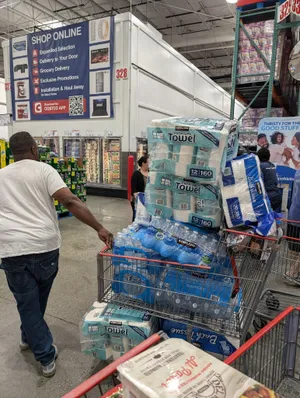
Toilet paper, paper towels not affected by the strike
But consumers may be stocking up on the wrong things – and panic-buying when they don't need to.
On Tuesday, 45,000 union workers went on strike when negotiations for a new contract broke down, shutting down 36 East and Gulf coast ports. It was the first International Longshoremen's Association (ILA) strike since 1977.
Half of all U.S. ocean imports flow through the East Coast and Gulf ports, which means consumers may face higher prices and shortages, experts have previously told USA TODAY. But those shortages would be for items like bananas, alcohol, seafood, electronics, pharmaceuticals, cars, auto parts and machinery parts.
Additionally, officials for President Joe Biden said in a previously reported USA TODAY story, that the strike impact on consumers would be “limited,” including “in the important areas of fuel, food and medicine.”
But some economists have told USA TODAY that each day of the strike could cost the economy up to $5 billion a day as imports and exports are blocked.
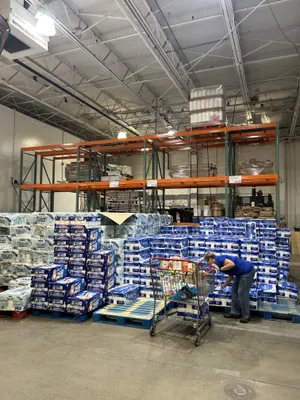
Consumer stockpiles to get ahead of the potential scarcity
Turbovsky said she knows that most of the things she stocked up on may not be affected by the port strike.
"But what I thought in my mind was the pandemic...Once people are scared, once this country feels the fear of anything, we will all feel the PTSD of the pandemic, so immediately people think of toilet paper, paper towels, food supply," she told USA TODAY.
"People feel the fear and want to overconsume and buy everything they can," she added.
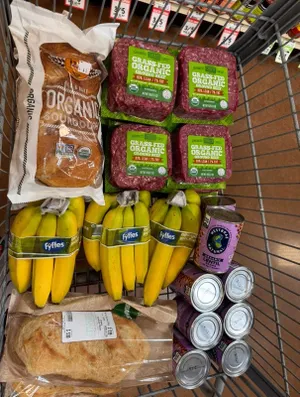
Turbovsky spent $280 buying more than 30 pounds of meat to stash in her freezer, along with bananas, which she also froze, and other essentials. Turbovsky said she had a hard time finding meat during the pandemic when there were supply-chain issues.
She felt guilty buying so much meat, "but at the end of the day, I slept better at night knowing that I was prepared for the days to come," Turbovsky said.

Supply chain issue is different from Covid-19 shutdown
The reasons the port strike might cause product shortages differ from those that sparked the shortfalls during the pandemic when there were production shutdowns, said Josh Stillwagon, an associate professor and chair of the economics department at Babson College in Massachusetts.
"If all of the ports in the U.S. closed and we didn't have the West Coast (ports), I think you'd see something more like that (COVID-19 supply chain issues), where you'd have to worry about stockpiling," Stillwagon told USA TODAY.
Instead, Stillwagon thinks any strike-related shortages will mirror what occurred in 2021, when ports became congested as supplies started coming back online, delaying deliveries. Depending on how long the strike lasts, consumers should expect to see backlogs in goods arriving as shipments will have to be re-routed to the West Coast, he said.
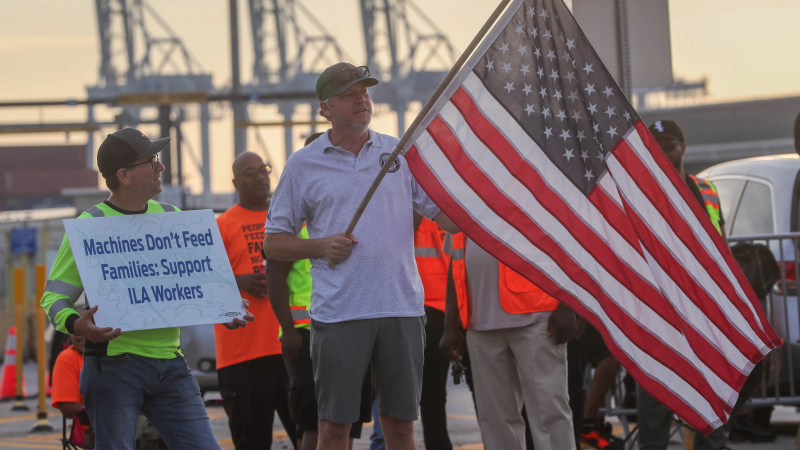
Consumers will also pay more as extra transportation costs to get the goods from the West Coast to the East Coast will have to be built into prices, he said.
Stillwagon said he understands how consumers could feel uncertainty about the port strike, leading them to stockpile goods.
"People have that ambiguity about what the outcome will be, and so they sort of flock to the necessities that were very inconvenient last time when we didn't have them," he said. Concern may also be exacerbated by the aftermath of Hurricane Helene, which has left many of the people impacted struggling for necessities, "so people are stockpiling given both of these major news events."
Port strike fallout:Will gas prices, supplies be affected by the port strike? What experts say
Whether there will be shortages of goods from the strike depends on how long it lasts, said Stillwagon. Inventories are back to pre-pandemic levels and suppliers are "a little more attuned to disruption in the supply chain after COVID, so you may not notice it if it lasts a week or two," he said.
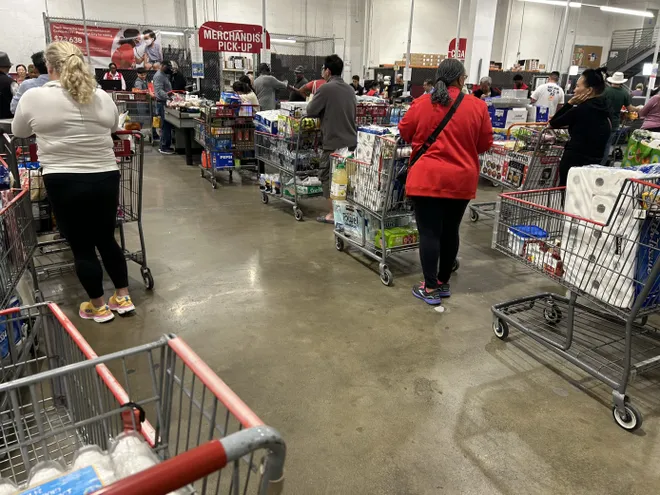
Not everyone is stocking up
Not all consumers were panic-buying.
Shoppers crowded the aisles at Grosvenor Market in Rockville, Maryland, at lunchtime Wednesday. But that was less about hoarding and more about Rosh Hashanah, the coming Jewish New Year, said Scot Shuck, the store’s owner.
By midday on day two of the port strike, Grosvenor customers had barely made a dent in the store’s inventory of milk, toilet paper, bread and other staples.
Shuck said he hasn't witnessed any of the panic-buying that gripped supermarkets back in 2020, at the height of the pandemic. Nor does he expect many supply-chain shortages to come.
If the strike does drag on, Shuck said, the store may have trouble procuring some of his customers’ favorite imports: “Wines, cheeses and, I think, more fruits than vegetables,” he said.
And so, Shuck said, “let’s hope that it blows over very quickly.”
USA TODAY staffers Josh Rivera, Medora Lee and Daniel de Visé contributed to this report. Betty Lin-Fisher is a consumer reporter for USA TODAY. Reach her at blinfisher@USATODAY.com or follow her on X, Facebook or Instagram @blinfisher. Sign up for our free The Daily Money newsletter, which will include consumer news on Fridays, here.
Disclaimer: The copyright of this article belongs to the original author. Reposting this article is solely for the purpose of information dissemination and does not constitute any investment advice. If there is any infringement, please contact us immediately. We will make corrections or deletions as necessary. Thank you.







